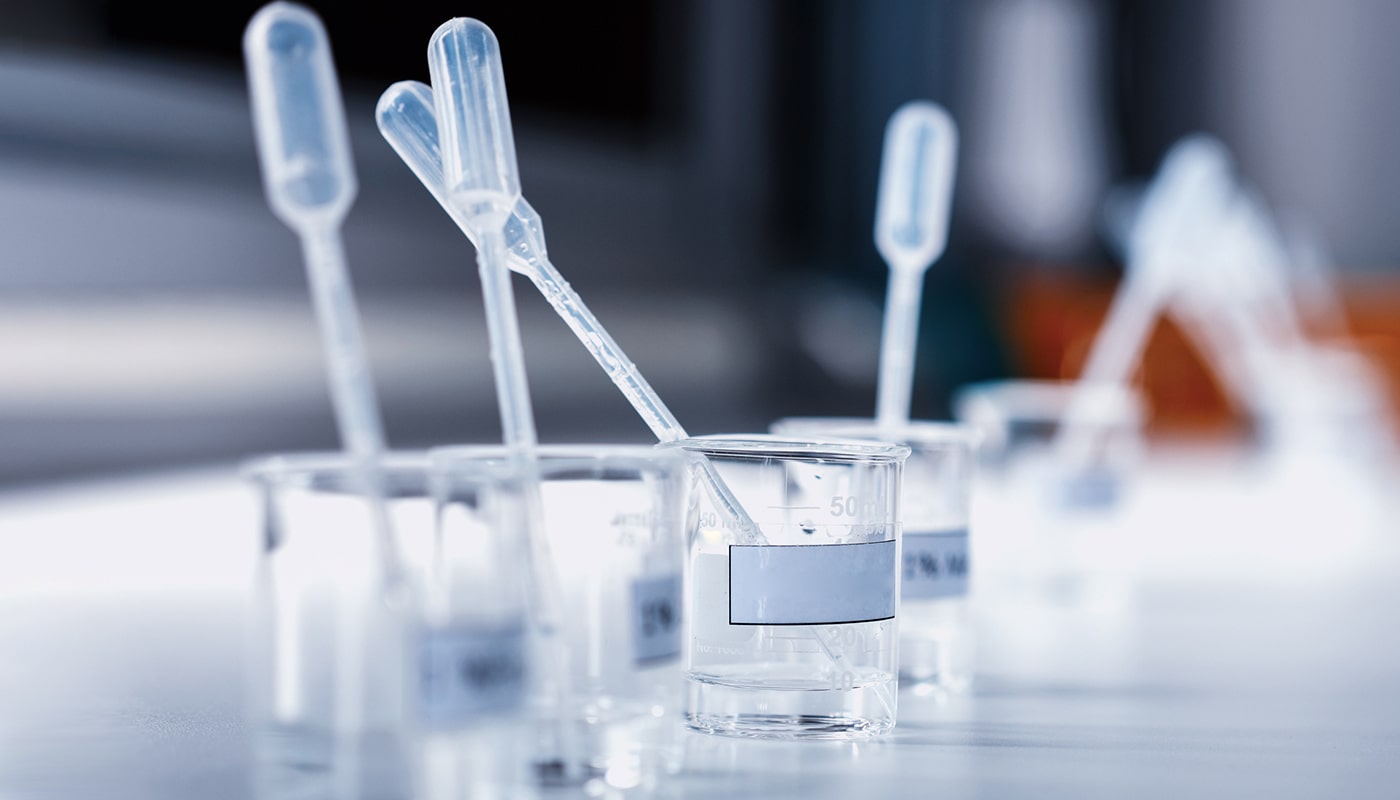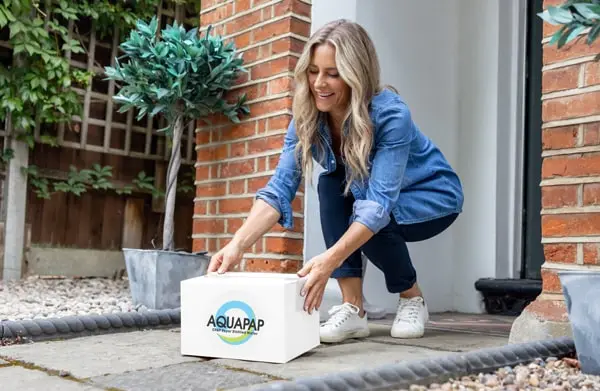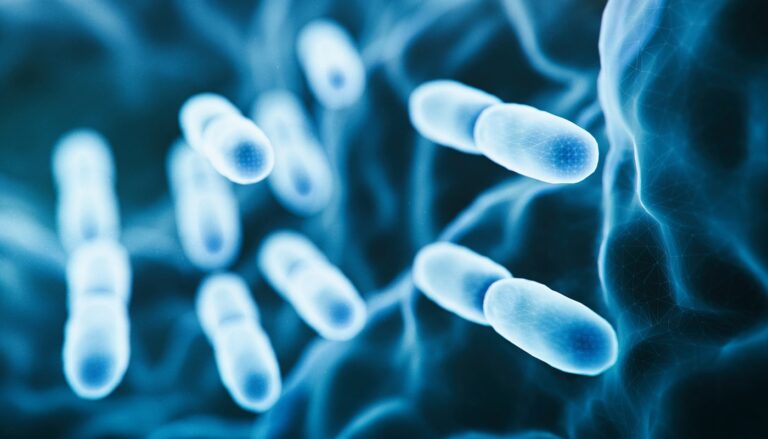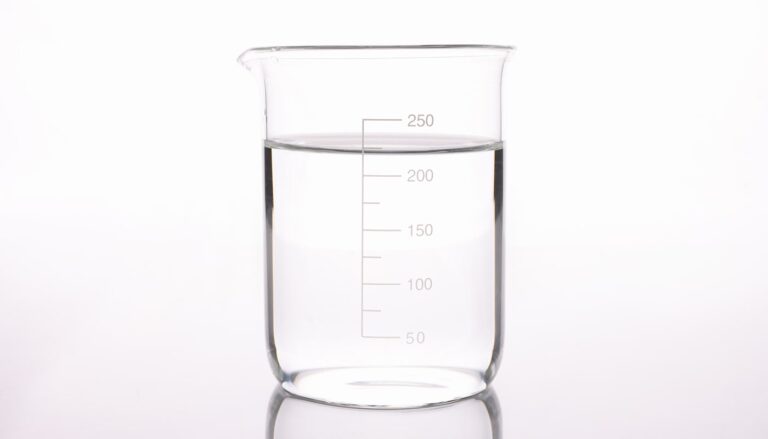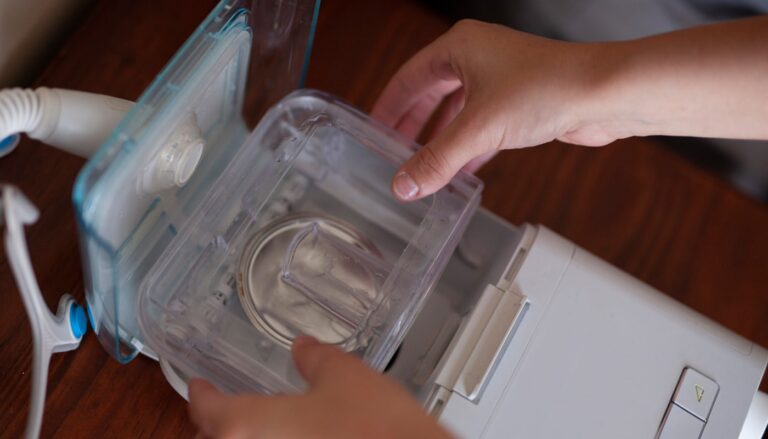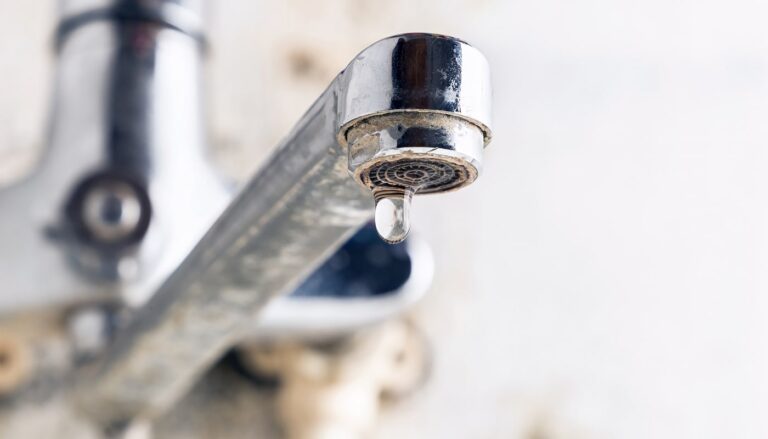Water plays a vital role in the global economy. Humans use about 70% of fresh water for agriculture. In many parts of the world, fishing in salt water and fresh water is an important food source. A large portion of the long-distance trade of commodities takes place by boat, traveling through seas, rivers, lakes, and canals. Cooling and heating in industry and homes are handled with large amounts of water, ice, and steam. Water is also considered one of the best solvents. But what is the pH of distilled water and how does pH influence how water can be used?
In its purest state, water has a pH of 7, which is at the very center of the pH scale. We know that distilled water is a type of purified water that is used in various medical equipment and products. But what about the pH of distilled water? Does it ever change, and if so, why? But before we talk about the pH of distilled water, let’s discuss what pH actually is. Here we will explore the pH of distilled water and find out whether or not it’s something that CPAP users should be concerned about when choosing the water that goes in their machine’s humidifier.
Get the perfect pH in the right size for your CPAP use with vapor distilled water. Visit Aquapap today!
What is pH?
A pH measurement is used in chemistry to determine the concentration of hydrogen ions in a water-based solution. Generally, a lower pH indicates that the liquid contains more hydrogen ions, whereas a higher pH means fewer hydrogen ions. The pH scale measures a liquid’s acidity or alkalinity on a scale of 1 to 14. Having a pH of 7, pure distilled water is right in the middle of the scale. A pH of less than 7 is considered acidic, and a pH of more than 7 is deemed to be alkaline. For example, vinegar has a pH of about 2, making it very acidic. On the other hand, bleach has a pH of 13.5, which is highly alkaline.
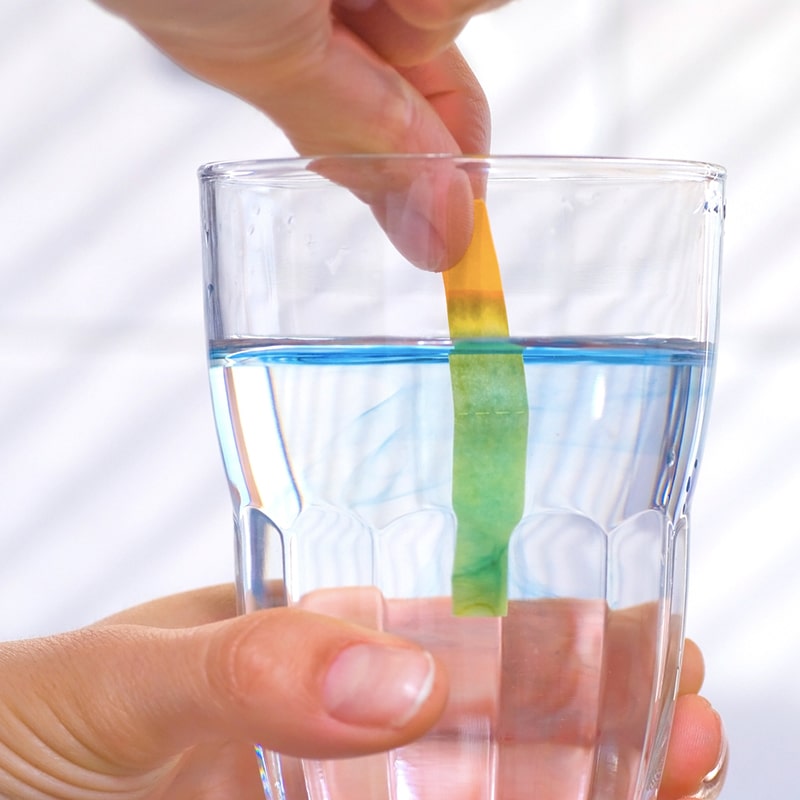
What is the pH of distilled water?
Distillation involves boiling water, condensing the steam in a tube, and collecting the condensed steam in a container. Various substances may dissolve in water, and some might even vaporize along with the water, but salts and other solid solutes are left behind. Sophisticated distillation techniques can remove even volatile solutes. After distillation, the collected condensate should be free of any solutes, and the pH should be 7.
Is the pH of distilled water stable?
The pH of pure distilled water can go as low as 5.8, which is acidic. This is because water can absorb carbon dioxide until it comes into equilibrium with the atmosphere. In a liquid solution, carbon dioxide reacts with water and produces carbonic acid, releasing hydronium ions into the solution, the equivalent to releasing free hydrogen ions.
2H20 + CO2 -> H2O + H2CO3 (carbonic acid) -> H3O+ (hydronium) + HCO3- (bicarbonate ions)
It takes around two hours for a sample of distilled water to absorb all the carbon dioxide from the atmosphere and achieve its final pH. Since distilled water can turn acidic after coming in contact with atmospheric carbon dioxide, using gallon jugs of distilled water might not be a good option for people who need truly pure and neural pH water like CPAP users. To solve this problem, Aquapap provides vapor distilled water in different sizes to suit different needs.
Is distilled water suitable for a CPAP?
The safety of your CPAP machine depends upon the quality of the water that you use in a CPAP humidifier. Tap water contains microorganisms, minerals, and chemical contaminants. Microbes can be killed by boiling water. However, boiling will not remove minerals or chemical contaminants. Minerals like calcium, magnesium, and iron make your water “hard.” If they are present in the water you use in your CPAP, they will lead to mineral deposits called scale. Mineral deposits could damage the machine.
Filtering might remove some minerals but may not remove microbes or other chemical solutes. Therefore, distilled water is considered as the safest option and is the only type of water recommended for use in machines by CPAP experts. Not only does distilled water prevents mineral deposits, but also extends the life of the water tub.
Ready to invest in the right type of water with the right pH?
If you’re looking for the best water to use in a CPAP humidifier, distilled water is recommended. Distilled water has a neutral pH, which can turn acidic after coming into contact with carbon dioxide over time. That’s why vapor distilled water from Aquapap comes in different sizes instead of large gallon jugs, so you can use the quantity of water you need all at once without risking the water turning acidic or becoming contaminated. Invest in vapor distilled water today to keep your CPAP running smoothly. Visit Aquapap today!
